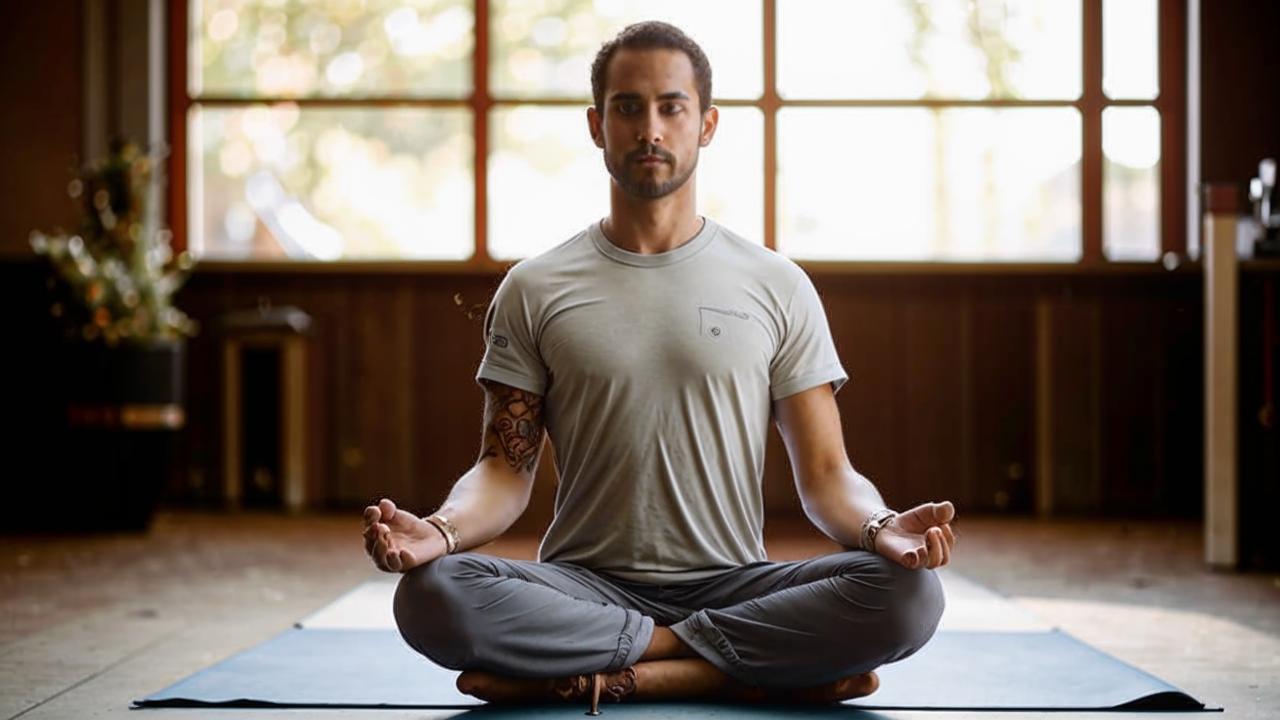In the high rhythm of life, we are used to almost every day to leave the comfort zone and face nervous situations. It would seem that with the arrival of quarantine they should have become less, but everything turned out differently. Round-the-clock stay in four walls, continuous interaction with the family, the lack of boundary between remote work and rest – all this can be attributed to the obvious stress factors, which are layered on top of each other. And with them, we accumulate unnecessary, often negative thoughts in our heads.
Meditation is a great way to get rid of them and break the vicious circle of tension. But the benefits of eastern practices do not end there. Together with fitness trainer, triathlete and marathon runner Vladimir Lepesa we tell you how they can be useful in everyday life.
What is meditation and why do we need it?
Often we are faced with the opinion that meditation is a very specific activity, which is necessary only for yogis and those who are seriously interested in spiritual practices. In fact, meditation has long been transformed from a highly moral direction of Eastern culture into a convenient and practical activity available to everyone. It is necessary for absolutely all people, especially those who are in self-isolation.
Vladimir: Meditation is observing yourself and your thoughts. It is a conscious experience of them, the ability to separate oneself from the emotional component and not to identify with one’s thoughts. Therefore, in any chronic stress, and all people living in a megapolis are under such conditions, this practice is very important. It helps us for a while, to put it simply, to give our brain a rest. To stop the thinking background that it generates. Or we can either dissociate with this background and just observe it. This helps to rest, focus, improve concentration and attention, relax the nervous system, allows you to calm down and concentrate.

Benefits of practicing for the body and mental state
During practices, the body is fully relaxed, but at the same time it starts many processes that affect the physical and mental state of a person, as well as affect the figure. Let’s understand what meditation does to our body on a deep level.
Affect brain activity and improve mental state
Meditation has a positive effect on the brain. The results of numerous studies have proven that the amygdaloid body, which is responsible for emotional reactions, significantly shrinks in size during the practice. This leads to a person becoming more balanced and less sensitive to stimuli from the external environment.
In addition, meditation helps to let go of fears, pain and resentments more easily, stimulates brain activity, increases the level of concentration and attention. And after practicing, both hemispheres of the brain begin to work in balance – this brings order to your life.
Develop imagination and the ability to visualize
This is due, again, to the balanced work of the different areas of the brain. It is commonly believed that people with analytical and logical mind dominate the left hemisphere, and creative natures – the right. But spiritual practices can also be referred to the “right hemisphere”: they develop imagination and the ability to visualize. Therefore, it is quite possible that a person who was previously far from art will awaken his creative potential.
Heal the body from the inside out
Some studies have shown that people who devote at least 15 minutes a day to meditation, increased the tone of the vagus nerve that connects the heart and brain. Along with this, the level of cortisol, a stress hormone, decreased in the body. These two phenomena combine to reduce the risk of stroke and heart attack. In addition, Eastern practices lower blood sugar levels, which is useful for diabetics, strengthen immunity and slow down the aging process in the body.
They help you feel better about the people around you
Meditation is not aimless contemplation of an abstract point in space. During the practice, attention should be directed inside yourself. And those people who spend enough time studying their own nature, begin to better understand and feel those around them.
They get rid of acute sensation of pain
Since the practices affect brain processes and mental state, they teach you how to generate positive emotions on your own, as well as get rid of or lessen negative ones. Surprisingly, when people with chronic pain were introduced to meditation skills, they learned to tolerate unpleasant sensations more calmly or noticed a decrease in their severity altogether.
Help you lose weight
Weight loss is continuously linked to metabolism. Stress is a huge obstacle to the proper functioning of the body, and a constant nervous state can lead to weight gain. Therefore, in order to speed up metabolism, it is important to learn to relax, which is what meditation can help with. Also practices have a positive effect on the quality of sleep, which is extremely important on the way to the ideal body.
When is the best time to meditate?
Meditative practices are different, but for people with active lifestyles, they are most often a way to relax, recover and get rid of unnecessary thoughts. That’s why our expert recommends to meditate when both brain and body are most ready for it – either immediately after waking up or before going to bed.
Vladimir: It is best to practice after waking up, when the brain is still relaxed and is in a borderline state between sleep and wakefulness. This practice is the best way to replace our usual habit of logging into gadgets, social networks, and reading emails in the morning. This is something that should be done right before we start interacting with the world around us. That is, to do meditation in order for our brain to come to a peaceful state and become protected from all the thoughts that will pass through it. So that we could realize that not all thoughts that are in our head should be taken seriously and identified with them. Or the practice can be done before going to bed to relax the nervous system for a better sleep, to disconnect from all work processes and to give the body and brain a quality rest.






